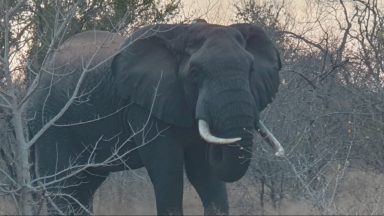Known as a keystone species, the role of elephants within the ecosystem plays an important role in shaping the surrounding natural environment by modifying, creating, and maintaining habitats that enable other animals to survive. Today, Zinave National Park will see 23 new elephants being introduced, boosting biodiversity and further developing the park as an integral component of the Great Limpopo Transfrontier Conservation Area.
If you’ve been following Peace Parks TV this week, you will know that these 23 elephants have been translocated from Maputo National Park’s buffer zone, where they were facing significant risk due to human-wildlife conflict, to the safety and space of Zinave National Park.
From understanding the reasons why this translocation had to happen to learning about how the elephants are picked up by crane-trucks and loaded into specially designed crates, seeing blood and DNA samples taken to anxiously watching experienced wildlife vets treat an injured baby elephant – the final phase of the elephants’ journey is about to begin.
As the elephants make their way of out the trucks and into the safety of Zinave’s forests, Park Warden Antonio Abacar explains that elephants are vital to the health of the landscape as they open up new areas through their widespread movement and feeding habits, which allows for new grasses to grow. Believe it or not, their nutrient-rich dung also plays a vital role in shaping the ecosystem as it contains many intact seeds which are distributed throughout the landscape as they move through it.
Co-managed by Peace Parks Foundation and Mozambique’s National Administration for Conservation Areas, Zinave National Park is one of southern Africa’s most beautiful conservation success stories and a testimony to how quickly nature can bounce back, given the time.
Peace Parks would like to extend its thanks to everyone who made this translocation a success, particularly to Kester Vickery and his dedicated team at Conservation Solutions and the passionate Mozambique Wildlife Alliance veterinarians; their combined expertise here was invaluable. Of course, none of this would have been possible without the generous support of donors, in this case, ICWA.
Keep watching Peace Parks TV to see how these keystone species settle into their new home!

